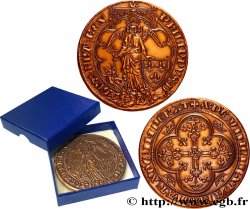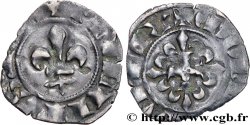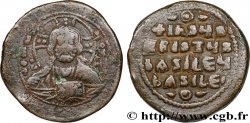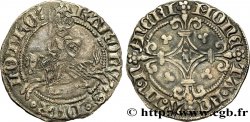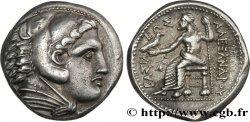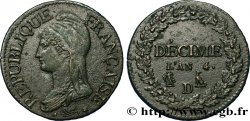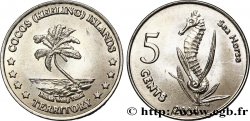得先注册又得到批准才可以报价。为了报价注册. 客户应该得到公司允许,那种过程需要 48 个小时。别等出售结束那一天才登记。您报价的话等于您赞成买那物品,而且按« 保价 » 证明您接受 cgb.fr 因特网拍卖使用法.
报价时只可以出全数值欧元总额。物品描述也说明销售结束时间,结束后出价都不会生效。 报价命令转达有时变动,等到最后秒钟增加否决的可能会。想多了解的话请注意 因特网拍卖常问
最高出价方将支付18%的不含税的拍卖费用
最高出价方将支付18%的不含税的拍卖费用
| 估算 : | 28 000 € |
| 价格 : | 14 000 € |
| 最高出价 : | 14 000 € |
| 拍卖结束日期 : | 07 June 2022 16:43:07 |
| 竞拍人 : | 4 竞拍人 |
种类 Parisis d’or
日期: 06/09/1329
日期: n.d.
铸币厂名称/城市 s.l.
材质 gold
纯度、成色(用角密度) 1000 ‰
直径 31 mm
模子方针 9 h.
重量 6,90 g.
稀少度 R3
关于品相的说明
Ce parisis d’or est frappé sur un flan large et régulier. Exemplaire présentant de hauts reliefs avec d’infimes faiblesses de frappe très localisées à 3 heures au droit, se retrouvant à 11-12 heures au revers
家谱
Exemplaire provenant de la vente n° 8 de Monnaies de Collection de Monaco, 20 octobre 2021, n° 402
正面
正面的文字 + PHILIPPVS: DEI: GRA: FRANCORVM: REX, (PONCTUATION PAR TROIS POINTS SUPERPOSÉS).
正面的说明书 Philippe VI assis dans une stalle gothique avec baldaquin, couronné, tenant le sceptre et a main de justice, les pieds posés sur deux lions couchés.
正面的翻译 (Philippe, roi des Francs, par la grâce de Dieu).
背面
背面的文字 + XP'C: VINCIT: XP'C: REGNAT: XP'C: IMPERAT, (N DE REGNAT ET INPERAT RÉTROGRADES, PONCTUATION PAR DEUX SAUTOIRS SUPERPOSÉS).
背面的说明书 Croix feuillue et fleuronnée avec quadrilobe en cœur, cantonnée de quatre lis, dans un quadrilobe aux quatre angles extérieurs tréflés.
背面的翻译 (Le Christ vainc, le Christ règne, le Christ commande).
评论
Avec le florin Georges et la couronne d’or, le parisis d’or est la monnaie la plus rare du règne de Philippe VI.
Along with the Georges florin and the gold crown, the gold parisis is the rarest coin from the reign of Philip VI.
Along with the Georges florin and the gold crown, the gold parisis is the rarest coin from the reign of Philip VI.







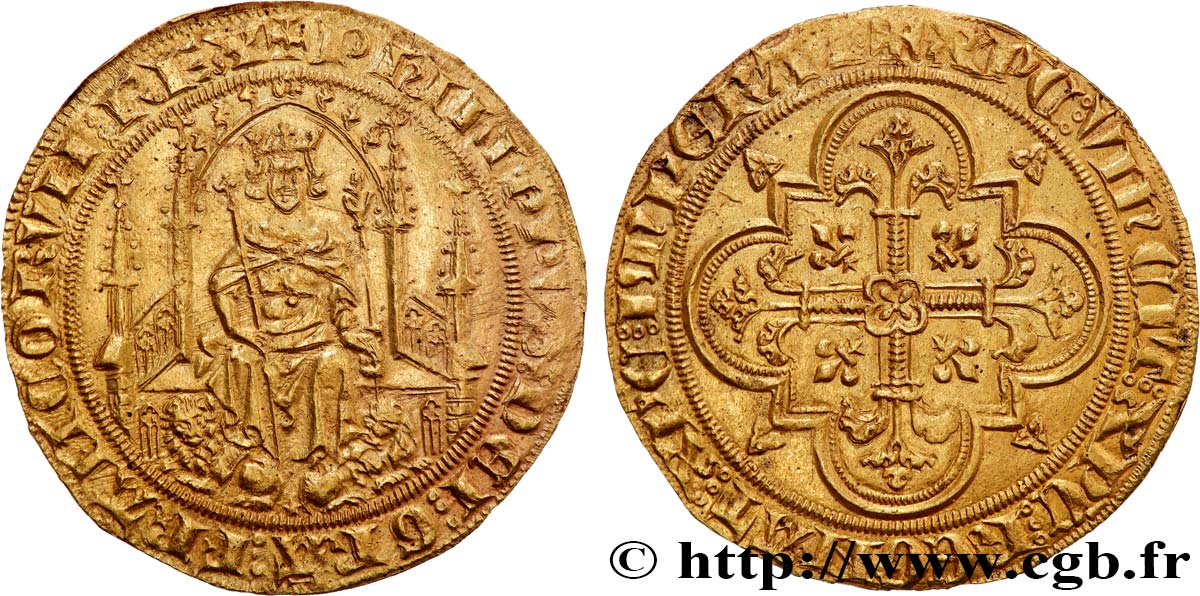
 对产品描述纠错
对产品描述纠错 打印
打印 分享我的选择
分享我的选择 提问
提问 Consign / sell
Consign / sell
 产品介绍
产品介绍


